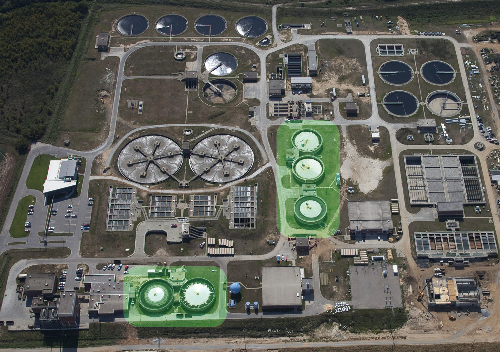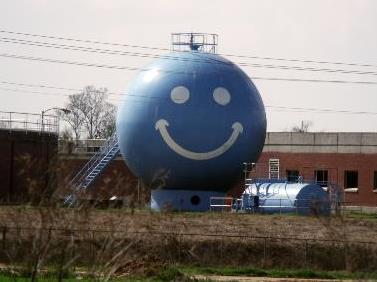CW2020 Employee Newsletter Vol. 4, No. 1
In July 2015, the City of Columbia began construction of a two-year, $25 million Anaerobic Digester Rehabilitation Project at the Metro Wastewater Treatment Plant. Improvements include refurbishing the existing anaerobic digestion facilities and constructing a new boiler building. This project will promote sustainability and reduce the costs of solids management. Metro WWTP Superintendent, David Wiman, commented that “with each improvement to the Metro Wastewater Treatment Plant, the City is another step closer to a more sustainable, reliable, and efficient wastewater system.”
Digester Rehabilitation Project at the Metro Wastewater Treatment Plant. Improvements include refurbishing the existing anaerobic digestion facilities and constructing a new boiler building. This project will promote sustainability and reduce the costs of solids management. Metro WWTP Superintendent, David Wiman, commented that “with each improvement to the Metro Wastewater Treatment Plant, the City is another step closer to a more sustainable, reliable, and efficient wastewater system.”
Anaerobic digestion is a biological process where micro-organisms break down organic matter in the absence of oxygen. This process also converts organic matter into methane gas. By rehabilitating its anaerobic digester to make this process more efficient, the City is able to reduce the amount of biosolids from its wastewater treatment process, capture methane gas, and reuse this gas to produce energy.
Reducing the amount of biosolids by more efficient digestion means the City will save on the handling and hauling costs. The new digestion facilities will also produce a beneficial biosolids product that could be used for approved agricultural purposes, which means even fewer trips to the landfill and a further reduction in hauling costs.

The captured methane gas will be used to fuel boilers that heat and sustain the digester operations. Using this methane gas reduces the amount of natural gas purchased from the power company, a substantial savings for the City.
The digester project is another example of the City’s continuing effort to make improvements to its wastewater system. All of these improvements also improve water quality and protect the safety and health of the public.